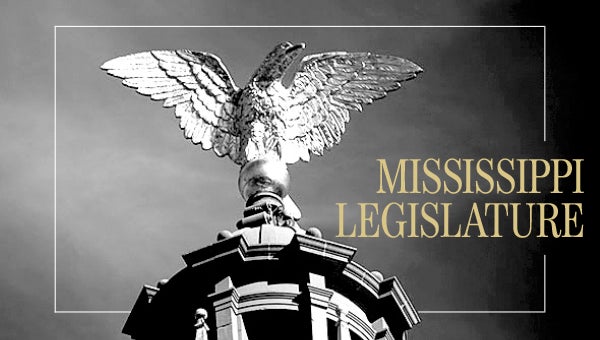State budget tops agenda when legislators return
Published 4:35 pm Thursday, April 30, 2020
After reconvening Friday afternoon, the Mississippi Legislature is pushing against time to wrap up the remainder of the session, and passing a budget will be the top priority.
The Legislature suspended its session March 17 out of concern for the COVID-19 virus and was to reconvene May 18. Speaker of the House Philip Gunn and Lt. Gov. Delbert Hosemann accelerated the timetable Thursday, calling on House and Senate to reconvene Friday to close out the session that began Jan. 2.
There are only a few days remaining in the session and the state’s fiscal year ends June 30. The fiscal 2021 budget must be in place by July 1, the start of the new fiscal year.
“This will definitely be an interesting year,” District 55 Rep. Oscar Denton (D-Vicksburg) said. “I believe we have 40-something days left.”
And Dist. 54 Rep. Kevin Ford (R-Vicksburg) said the Legislature will be trying to stretch that time as far as possible.
“We usually do it (the budget) by the end of April, but we’re going to push it all the way to the last second,” Ford said. “We’re going to push it as far into May as we can and then into June because we’re going to make it to the last session to see what the numbers are going to be — our projected revenue.”
Legislators do not yet know how the state’s revenue has been affected by the shelter in place orders issued by the state and local governments to reduce the spread of the COVIC-19 virus. And the revenue projections dictate how the Legislature will balance the state’s budget.
“Until we get those numbers, we won’t know, and the estimates keep changing.
They just don’t know what to expect,” Ford said.
“I think everything’s up in the air,” said Dist. 23 Sen. Briggs Hopson (R-Vicksburg), Senate Finance Committee chairman.
“This situation financially is so fluid that it’s difficult for anyone to forecast what area will need to be covered the most with the available state funds that we have and what the final revenue forecast is going to be,” he said.
One thing legislators will have to do soon after the session opens, Hopson said, “Is have some in-depth meetings with the state economist and the commissioner of the Department of Revenue, and look at what this means for the rest of this fiscal year, which is the FY2020 budget, and then what we’re forecasting for 2021.
“We’re going to see if there are any holes we need to fill for the remainder of 2020, and then we’ll be looking for a revenue estimate for 2021, which we will use to set or budgets for next year,” he said.
If the revenue falls short of projection, at the close of the fiscal year, Hopson said, there will have to be some changes made.
Those changes could include cuts and the possibility of going into the state’s estimated $500 million rainy day fund if revenues drop significantly.
“Early on, there was some indication our numbers were going to be way down,” Ford said, “And if our numbers are way down, we’re going to have to use our rainy day fund. If we get into that, it’s going to tie our hands.”
“I think it’s going to be tough, I really do,” Denton said. “Hopefully we won’t cut anybody real bad; hopefully, we don’t cut anybody at all. But with what’s going on, you just don’t know. It’s bad, but we don’t know.”
While the budget takes center stage, it is not the only issue to be addressed during the reconvened session. Other bills remain pending and will have to be addressed, including local and private bills, which are specials bills affecting individual cities and counties.
The city of Vicksburg has three local and private bills pending. One seeks a referendum to levy a 1 cent sales tax to fund a $55 million capital improvements plan.
Another involves authorization to deal with derelict commercial buildings, while the third seeks an exception to the state’s traffic code to allow electric scooters to operate in downtown Vicksburg.
Denton said the chairman for the House Local and Private Committee said during a recent conference call that when the House convenes local and privates bills should ready and all information in order “so they can get them through and get them to the other side (the Senate).”
Ford said some bills were moved between the House and Senate the Legislature before they recessed “and we should be able to make short work of those. The budget will tell us what we can or cannot do.”
He said local and private bills are usually done within the last three weeks of of the session.
“I know the local and private chairmen pretty much have everything that they’re going to get. This is a unique one (session),” he said.







